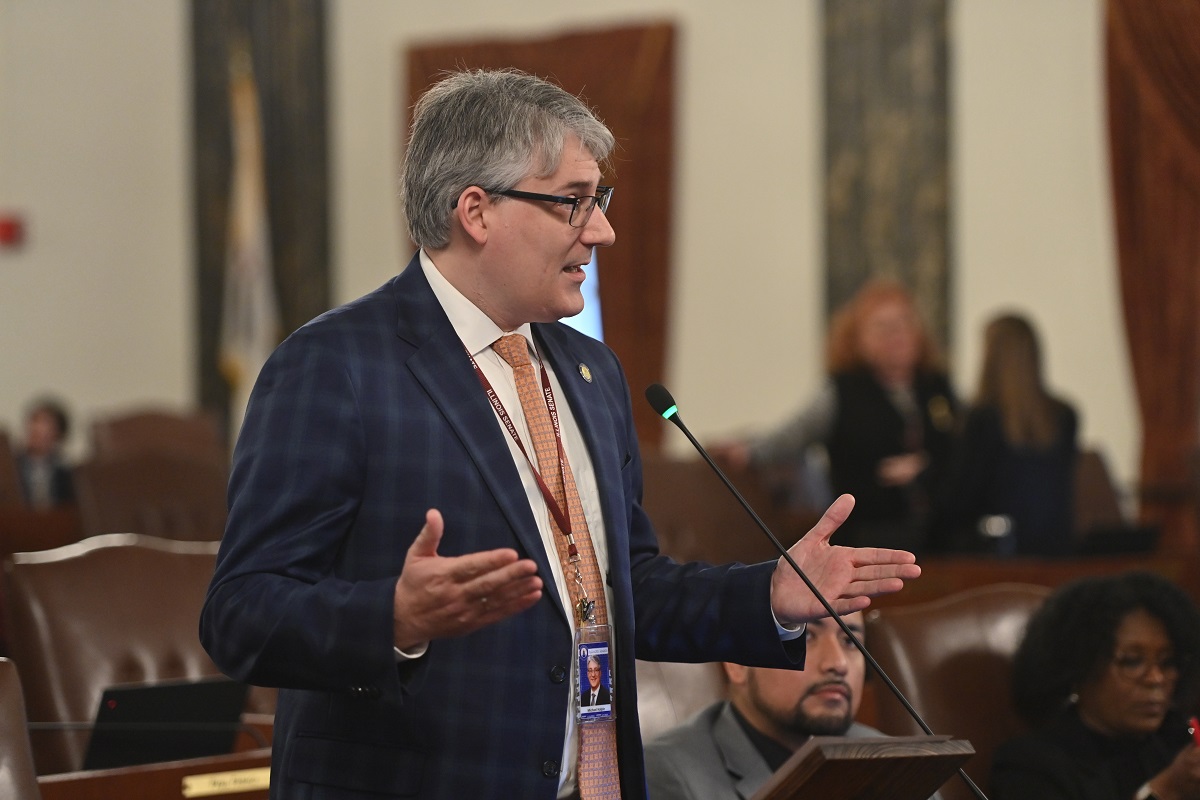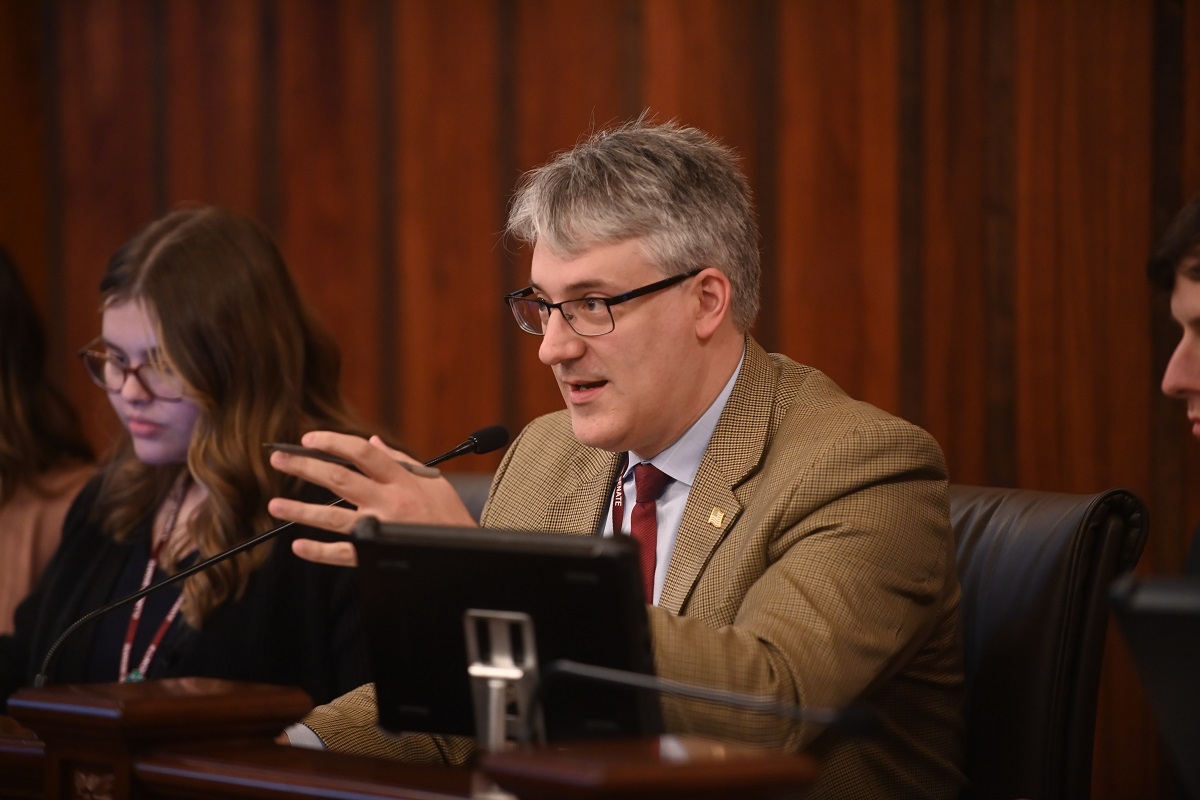Halpin introduces legislation to bring $7.2 million dollars to Western Illinois University
- Details
- Category: Press Releases

SPRINGFIELD – State Senator Mike Halpin introduced legislation to bring $7.2 million to Western Illinois University to drive new initiatives in innovation, workforce development and economic growth in the Quad Cities.
“Our state must ensure it can continue to fully serve its students and the broader community,” said Halpin (D-Rock Island). “This funding will give WIU the boost it needs to tackle higher education needs in the Quad Cities and beyond.”
Western Illinois University is launching several initiatives to help shape the next evolution of WIU-QC, including growing opportunities for local business through procurement and development assistance and building on programs that will position Western Illinois University to implement the community needs outlined in the recently released Illinois Board of Higher Education (IBHE) “Thrive Quad Cities” report.
“These dollars will allow WIU to step forward,” said Halpin. “We must give the university the tools to enable a stable solution and this funding is the way to accomplish that goal.”
“As a lifelong resident of the Quad Cities, it is an honor to lead the next era of public higher education for our community,” said Dr. Kristi Mindrup, president of Western Illinois University. “An additional $7.2 million investment in Western Illinois University will lead to exciting opportunities in education, engineering, and healthcare that meet the needs of the Quad Cities region and beyond.”
Senate Bill 1308 is awaiting to be heard in the Senate Education Appropriations Committee.
Halpin announces annual Valentine’s Day card drive for seniors
- Details
- Category: News

ROCK ISLAND – State Senator Mike Halpin is collecting store bought or handmade cards for residents in long-term care facilities for Valentine’s Day in order to brighten their day.
“I want to give the community a chance to lift up local seniors’ spirits this Valentine’s Day,” said Halpin (D-Rock Island). “A small gesture like a card can have a big effect on a person’s day.”
Local residents are encouraged to write kind notes and drop them off or mail them to Halpin’s district office, located at 117 E. Main St. Suite 103 Galesburg, IL 61401. He is collecting cards until Feb. 10 and will deliver them to local long-term care facilities.
People with questions can reach out to Halpin’s Rock Island office at (309) 558-3612 or Galesburg office at (309) 297-4483.
Halpin to chair Senate Committee on Education Appropriations
- Details
- Category: Press Releases

SPRINGFIELD – State Senator Mike Halpin has been appointed chair of the Senate Committee on Educations Appropriations in the 104th General Assembly.
“I am committed to the upkeep and expansion of Illinois’ public education system,” said Halpin (D-Rock Island). “Education is the bedrock of the economy and our community. Laser focus on education will be required to begin the revitalization of the Quad Cities and other downstate communities.”
The Senate Committee on Education Appropriation deals with funding and oversight of projects related to education. Education Appropriations covers primary, secondary, as well as higher education. This means projects covering everything from grade schools to public colleges and universities.
“Education is a person’s best tool to navigating these uncertain times,” said Halpin. “As chair, I will dedicate my time to ensuring Illinois has a fully funded education system and every Illinoisan has full access to that system.”
Halpin will chair the committee throughout the 104th General Assembly.
Halpin announces Health Equity Zone pilot project grant coming to McDonough County
- Details
- Category: Press Releases

ROCK ISLAND – State Senator Mike Halpin announced Tuesday that Henderson Health Center is set to receive over $110,000 through the Health Equity Zone Pilot Projects pilot program.
“Addressing health inequities within our community continues to be a priority. Everyone deserves to have access to compassionate, quality, and accessible health care,” said Halpin (D-Rock Island). “At a time when corporate health insurance continues to fail regular people in western Illinois, grants such as the Health Equity Zone pilot program play an integral role in bolstering access to care.”
More Articles …
Page 11 of 33


